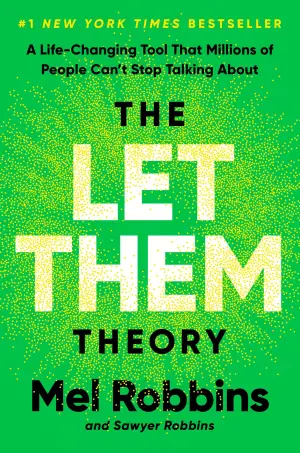Book Review: The Memory Ward by Jon Bassoff
When I first stumbled upon Jon Bassoff’s The Memory Ward, I was immediately drawn in by its tantalizing blend of mystery and horror, not to mention the eerie cover that practically whispers secrets. As an avid reader with a penchant for psychological thrillers, I was curious about how Bassoff would navigate the tumultuous waters of memory, identity, and the often-blurred line between reality and illusion. Little did I know that while the experience would be unsettling, it wouldn’t quite deliver the pulse-pounding suspense I craved.
The narrative follows Hank Davies, a postal worker in the seemingly tranquil town of Bethlam, Nevada. At first, the town appears picturesque, but as Hank begins uncovering blank letters and cryptic messages hidden behind peeling wallpaper, the tension mounts. The premise is rich with potential: a man confronting a reality that’s gradually unraveling. However, as I turned the pages, the anticipated dread and thrills became overshadowed by predictability.
One of the key themes that traverses the book is the nature of memory. Hank’s journey is deeply introspective as he wrestles with his past and the distortions of his psyche. The unreliable narration is a clever device used by Bassoff, propelling readers into a disorienting landscape where one can never quite trust what is being presented. This technique resonated deeply with me, constantly leaving me questioning the narrative’s authenticity. It’s a masterclass in psychological tension, even if the overall plot did not sustain that tension as vividly as I hoped.
While Bassoff’s writing captures an unsettling beauty, I found that the pacing sometimes dragged. Moments that should have pulsated with anxiety instead felt leisurely, diffusing the intensity of situations that had ample potential for suspense. This of course plays into the broader genre execution; marketed as a horror-thriller, it seemed to lack the gripping stakes or genuine dread that one typically expects. The major twist, a climactic promise of revelation, felt less like an ‘aha’ moment and more like an unavoidable confirmation—an all too familiar trope that sucked away the thrill.
One of the highlights of the book for me was the atmosphere. Bassoff crafts a paranoia-infused environment that requires the reader to be vigilant, almost as if we’re experiencing Hank’s unraveling alongside him. I found myself highlighting passages that beautifully encapsulated this eerie ambiance, like when Hank reflects on his surroundings:
“Nothing is ever truly what it seems, especially in a place that prided itself on its façades.”
This particular line resonated with my own experiences of contemplating how surface appearances often mask deeper truths, a notion that lingered with me long after I closed the book.
Ultimately, The Memory Ward excels in its exploration of identity and memory, weaving an intricate tapestry of despair and delusion. Yet, the weight of its themes often feels at odds with the execution of its plot, leaving certain readers, especially those who thrive on shocking revelations, feeling a bit shortchanged. While I can see the value in the introspective nuances — it’s a thought-provoking read for those curious about the complexities of the mind — I wish the narrative had unfolded with more urgency.
For fellow readers who appreciate a reflective dive into the psyche over an adrenaline-fueled chase, Bassoff’s work may resonate with you. However, if you’re on the hunt for a hair-raising, edge-of-your-seat thriller, you might want to set your expectations accordingly. Regardless, the reading experience reminded me of the power of memory and perception—often distorted, but always worthwhile to explore.














